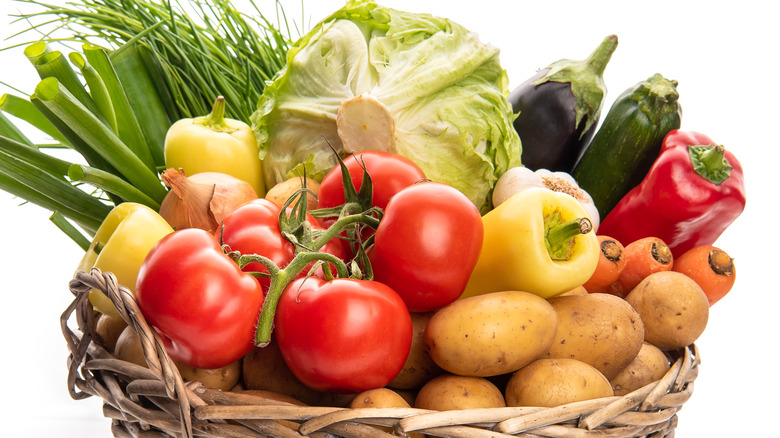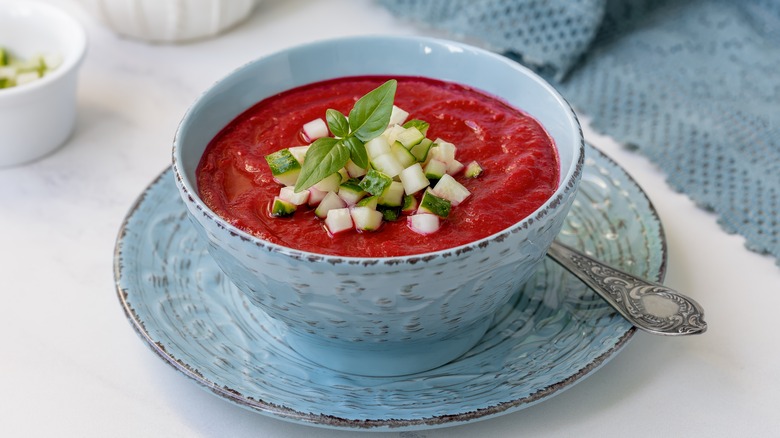Common Dishes That Contain Nightshade Fruits And Vegetables
Nightshade fruits and vegetables are those belonging to the Solanaceae plant family, and parts of the plants can be toxic because they contain high amounts of the alkaloid solanine (via Healthline). Solanine is an insecticide for the plant, and more of it can be found in the stems or vine than what you might see on your table (via WebMD). For example, a tomato is a nightshade, but you mostly eat the fruit (yes, a tomato is a fruit) rather than the tomato vine or stem. The riper the tomato, the less the amount of alkaloid. Potato plant stalks have a lot of the solanine alkaloid, and green potatoes are also high in solanine, according to MedicalNewsToday. The problem with solanine is that it can disrupt the microbes in the gut.
Some people might have a nightshade allergy, according to MedicalNewsToday. An allergic reaction to nightshades could include red, itchy, or flushed skin or gastrointestinal pain. Some food allergies might cause difficulty breathing or a runny nose.
According to the Arthritis Foundation, the stories that nightshade fruits and vegetables can aggravate arthritis are anecdotal. It recommends nightshades because they are rich in nutrients. However, they suggest temporarily eliminating them from your diet to see if they aggravate arthritis symptoms.
Identifying nightshades
According to WebMD, the most common nightshades are tomatoes, eggplants, and peppers, and some have more solanine than others. If you consume between 2 to 5 milligrams of solanine per kilogram of body weight, you could experience gastrointestinal issues. An eggplant has 11 milligrams of solanine, whereas potatoes can have as much as 225 milligrams, depending on their origin. The skin of the potato has the most solanine, so if you want to reduce this alkaloid from your diet, try removing the skin. You'll also find nightshades in dishes such as salsa, gazpacho, french fries, mashed potatoes, baba ghanoush, or eggplant parmesan.
Nightshades are also found in common spice blends that include spices such as cayenne pepper, curry powder, and chili powder (via Healing Autoimmune). Ashwagandha, goji berries, ketchup, and pimentos also are nightshades or have ingredients with nightshades. If you're looking to reduce nightshades, you can replace them with sweet potatoes, cauliflower, and mushrooms (via MedicalNewsToday).
Nightshades are rich in antioxidants, which help protect the body from cellular damage (via WebMD). The lycopene in tomatoes can reduce the risk of cancer and heart disease, and the anthocyanin in eggplant can reduce the risk of cancer, diabetes, and infections.


